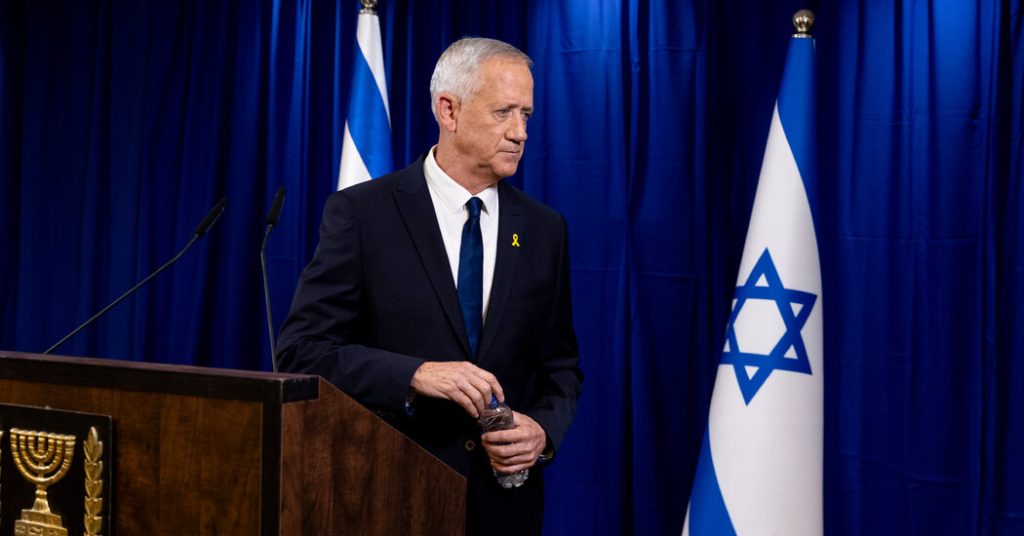Israeli politician Benny Gantz, a member of the country’s war cabinet, resigned from the government over Prime Minister Benjamin Netanyahu’s handling of the war in Gaza. Gantz, a centrist figure, had been critical of Netanyahu’s leadership during the conflict and had threatened to resign unless his concerns about the war’s end and its aftermath were addressed. Gantz’s departure exposed the divisions within the Israeli leadership regarding the future of the war and its impact.
Despite Gantz’s resignation, it is unlikely to force Netanyahu from office as the prime minister’s government still holds a narrow majority in Israel’s Parliament. Gantz’s exit comes amidst mounting frustration over the failure to decisively defeat Hamas or bring home all the hostages held in Gaza following a terrorist attack on southern Israel in October. International criticism has also been directed at Netanyahu as civilian casualties and destruction in Gaza continue to rise.
Previously, Gantz had set a deadline for Netanyahu to address a range of issues, including a plan for returning hostages held in Gaza. He had scheduled a news conference to discuss his concerns but postponed his remarks after Israeli authorities announced the rescue of four hostages. Gantz’s decision to leave the emergency government was described as coming “with a heavy but complete heart” due to his belief that Netanyahu’s leadership was hindering progress towards achieving a real victory in the conflict.
The resignation of Benny Gantz dealt a blow to the appearance of unity that Netanyahu had sought to maintain at the start of the conflict. Gantz’s departure highlighted the internal divisions within the Israeli leadership over the course of the war in Gaza and its long-term consequences. The exit of a key member of the war cabinet raises questions about the government’s ability to effectively navigate the ongoing conflict and address the challenges it presents.
As Gantz’s departure coincided with increasing frustration over the lack of significant progress in dealing with Hamas and bringing home hostages from Gaza, Netanyahu faced mounting pressure both domestically and internationally. The prime minister’s government continues to face criticism for its handling of the conflict, with concerns growing about the increasing civilian casualties and destruction in Gaza. The resignation of Gantz adds to the challenges faced by Netanyahu as he seeks to navigate the ongoing crisis.
Overall, Benny Gantz’s resignation from the Israeli government over concerns about Prime Minister Benjamin Netanyahu’s handling of the war in Gaza highlighted the internal divisions within the country’s leadership. Despite Gantz’s departure, it is unlikely to force Netanyahu from office, but it raises questions about the government’s ability to effectively address the ongoing conflict and its aftermath. The move comes amidst mounting frustration over the failure to decisively defeat Hamas and bring home hostages from Gaza, as well as increasing international criticism of Israel’s actions. Netanyahu now faces a challenging political landscape as he seeks to navigate the crisis in Gaza and address the concerns raised by Gantz and other critics.


